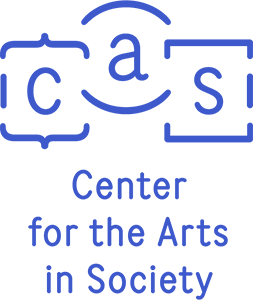(In)hospitable Space Call for Papers
A joint meeting of The Society for Social and Conceptual Issues in Astrobiology and The European Astrobiology Institute.
May 25–27, 2026
Carnegie Mellon University
Pittsburgh, PA, U.S.A.
Experts from across the disciplinary spectrum are invited to participate in an exploration of the many social and ethical questions raised by space activities from exploration to asteroid mining to settling new worlds. Questions such as…
- How do we make the inhospitable environs of outer space physically, psychologically, and socially amenable to human exploration and habitation?
- How much effort should space agencies and private companies make to ensure that the pool of space pioneers is representative?
- Should there be such a thing as private ownership of other worlds and/or pieces thereof?
- How have space and space travel informed and inspired works of design, music, art, literature, etc.?
- How should we regulate space activity through law and how could those laws be enforced?
- Should weapons be allowed in space and, if so, what kind and for what purpose?
- What might representations of space exploration and habitation in film, literature, art, music, etc. reveal or reflect about the evolving aspirations, social commitments, and future fears of human societies?
- How should humanity handle a first contact situation?
- How can we ensure that space resources are shared equitably?
- What are the similarities or differences in the way that different communities conceptualize outer space and evaluate the costs or benefits of space activities?
- Is space a “wilderness” in the same sense as wilderness on Earth?
- Does it count as pollution if it’s done on a lifeless world?
- What is the moral status of an extraterrestrial microbe?
- How are extraterrestrials represented in popular culture?
- How does the development of astrobiology compare to that of other “proto-sciences”?
We plan to have both a keynote speaker and a keynote panel — details will be announced closer to the event.
Pittsburgh is a city of three rivers and steel. A city with an industrial past which has evolved over the last half century into a hub for cutting-edge research in medicine, computing, robotics and space technology. It is home to eight universities including Carnegie Mellon University and the University of Pittsburgh, and boasts of an array of cultural attractions like the Carnegie Museums of Natural History, Art and Science; the Andy Warhol Museum; the Heinz History Center; and the Phipps Conservatory and Botanical Gardens. Geographically situated between the Great Lakes and the Appalachian Mountains, Pittsburgh also provides easy access to nature including world-class rafting in places like Ohiopyle, PA and New River Gorge, WV; miles of biking and hiking trails; and swimming and fishing on Lake Erie. Pittsburgh International Airport (PIT) is serviced by American, Delta, Southwest and United Airlines and can be easily reached by connecting flights out of New York, Baltimore, Chicago, Philadelphia, Charlotte, Atlanta and elsewhere.
If you wish to present your work at the 2026 SOCCIA Conference, submit this form by February 1st, 2026. Any questions about submissions or panels can be directed to Kelly Smith.
Additional information about the conference will be posted to the SSOCIA website when it becomes available. We especially encourage graduate students to apply and we anticipate having support to facilitate your participation.
